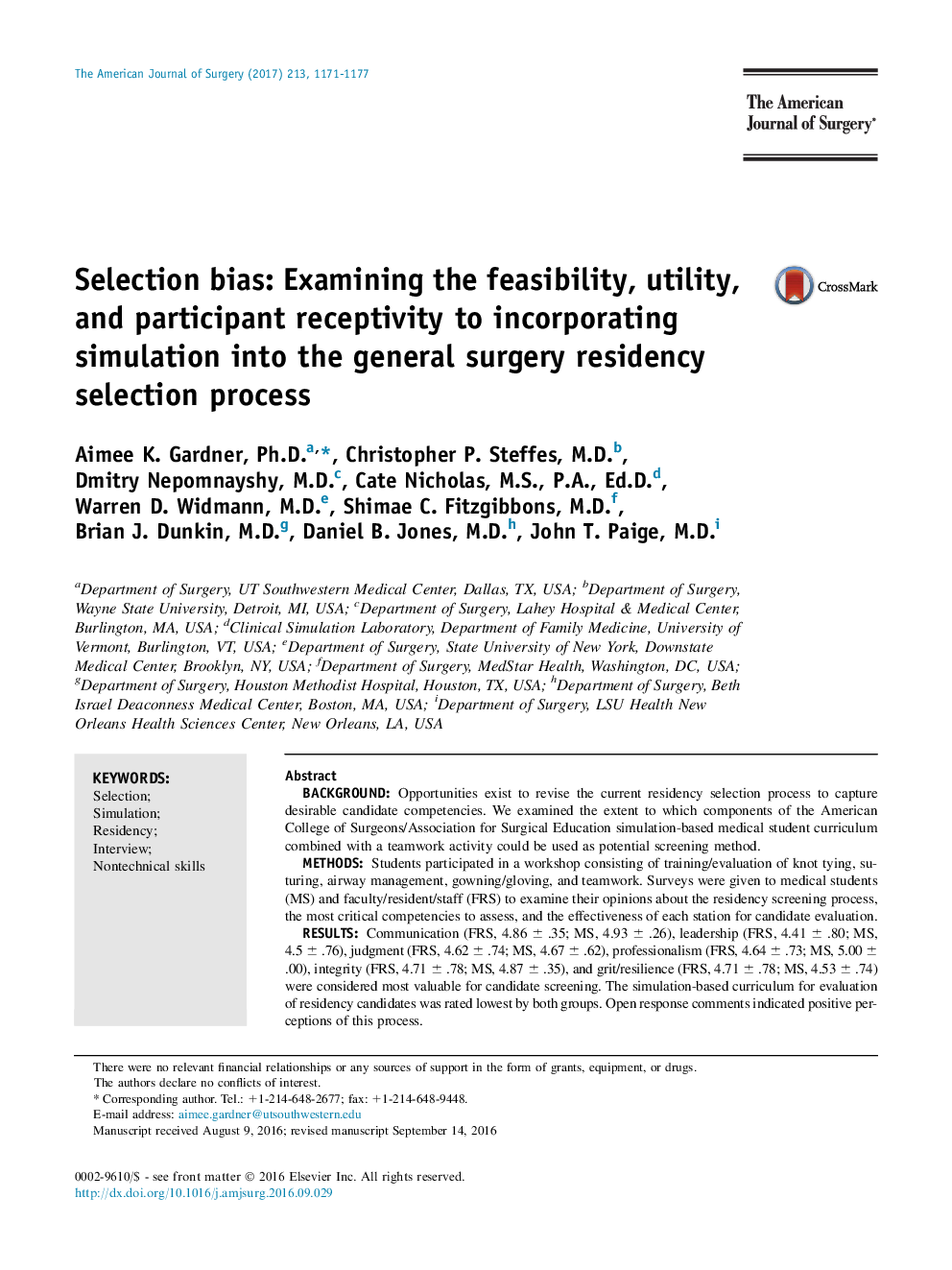| کد مقاله | کد نشریه | سال انتشار | مقاله انگلیسی | نسخه تمام متن |
|---|---|---|---|---|
| 5731265 | 1611470 | 2017 | 7 صفحه PDF | دانلود رایگان |
- We examined the extent to which a simulation-based medical student curriculum combined with a teamwork activity could be used as potential screening method.
- Communication, leadership, judgment, professionalism, integrity, and grit/resilience were considered most valuable for candidate screening.
- Employing simulation-based activities to assess candidates may be most helpful to evaluate nontechnical skills in individuals applying for surgical training.
BackgroundOpportunities exist to revise the current residency selection process to capture desirable candidate competencies. We examined the extent to which components of the American College of Surgeons/Association for Surgical Education simulation-based medical student curriculum combined with a teamwork activity could be used as potential screening method.MethodsStudents participated in a workshop consisting of training/evaluation of knot tying, suturing, airway management, gowning/gloving, and teamwork. Surveys were given to medical students (MS) and faculty/resident/staff (FRS) to examine their opinions about the residency screening process, the most critical competencies to assess, and the effectiveness of each station for candidate evaluation.ResultsCommunication (FRS, 4.86 ± .35; MS, 4.93 ± .26), leadership (FRS, 4.41 ± .80; MS, 4.5 ± .76), judgment (FRS, 4.62 ± .74; MS, 4.67 ± .62), professionalism (FRS, 4.64 ± .73; MS, 5.00 ± .00), integrity (FRS, 4.71 ± .78; MS, 4.87 ± .35), and grit/resilience (FRS, 4.71 ± .78; MS, 4.53 ± .74) were considered most valuable for candidate screening. The simulation-based curriculum for evaluation of residency candidates was rated lowest by both groups. Open response comments indicated positive perceptions of this process.ConclusionsEmploying simulation to assess candidates may be most beneficial for examining nontechnical attributes. Future work should continue to explore this area.
Journal: The American Journal of Surgery - Volume 213, Issue 6, June 2017, Pages 1171-1177
